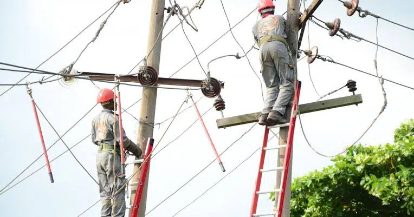It was with great shock that Nigerians received the announcement of the electricity tariff hike by the Nigerian Electricity Regulatory Commission (NERC).
The tariff is expected to affect 1,974,385 electricity consumers.

Before the recent changes, the average Nigerian ‘Band A’ customer paid roughly ₦60,000 monthly for electricity.
But now, the price has soared to ₦204,000.
NERC authorised the increase in electricity tariff per unit from about ₦66 to ₦225 for the different distribution companies (DisCos) in Nigeria, effective Wednesday, April 3.
The Adjustment
With the approval of a 240% increase, the tariff for ‘Band A’ power consumers has surged.
The Commission’s Vice Chairman, Musliu Oseni, spoke at a press briefing in Abuja on Wednesday.
To him, the tariff adjustment would exclusively apply to customers with 20-hour or more power supply across the nation.
This exempts those in Bands B, C, D, and E who use less than 20 hours of electricity per day.
NERC indicated that the adjustments would only affect a fraction of the over 3,000 DisCos’ feeders, specifically less than 481 feeders.
This makes up 15% of the over 12 million electricity consumers encompassed by the Nigerian Electricity Supply Industry (NESI).
Oseni also told journalists that NERC had mandated the downgrade of most feeders that previously failed to meet the 20-hour supply threshold to lower bands.
The Advise
Labour associations and concerned citizens have advised the government against removing electricity subsidies.
This proposition put forward by the International Monetary Fund (IMF).
The IMF spoke via its recent report entitled ‘IMF Executive Board Concludes Post Financing Assessment with Nigeria’.
It reiterated the necessity of eliminating subsidies to redirect resources toward more targeted and impactful social welfare programmes.
Amid the ongoing cost-of-living crisis, the IMF suggested implementing targeted social transfers.
The aim here is to offer temporary assistance to the most vulnerable segments of the Nigerian population.
The Analysis
In light of the recent tariff hike, we analysed the situation and found that an average Band ‘A’ consumer, previously spends ₦60,000 monthly on electricity for their appliances.
But now, they are expected to pay around ₦204,000, representing a significant increase of 240.9%.
Also Read: Lagos State: See Areas That Will Pay Higher Electricity Tariff (Full List)
Before now, ₦60,000 could purchase 909.09 KwH or units, but now it can only buy 266.66 KwH or units.
The NERC made some defence regarding the heightened charges.
It pointed out that premium customers could significantly reduce or eliminate expenditures on diesel and petrol generators.
This is because they would now have access to uninterrupted power supply for 20 hours or more.

